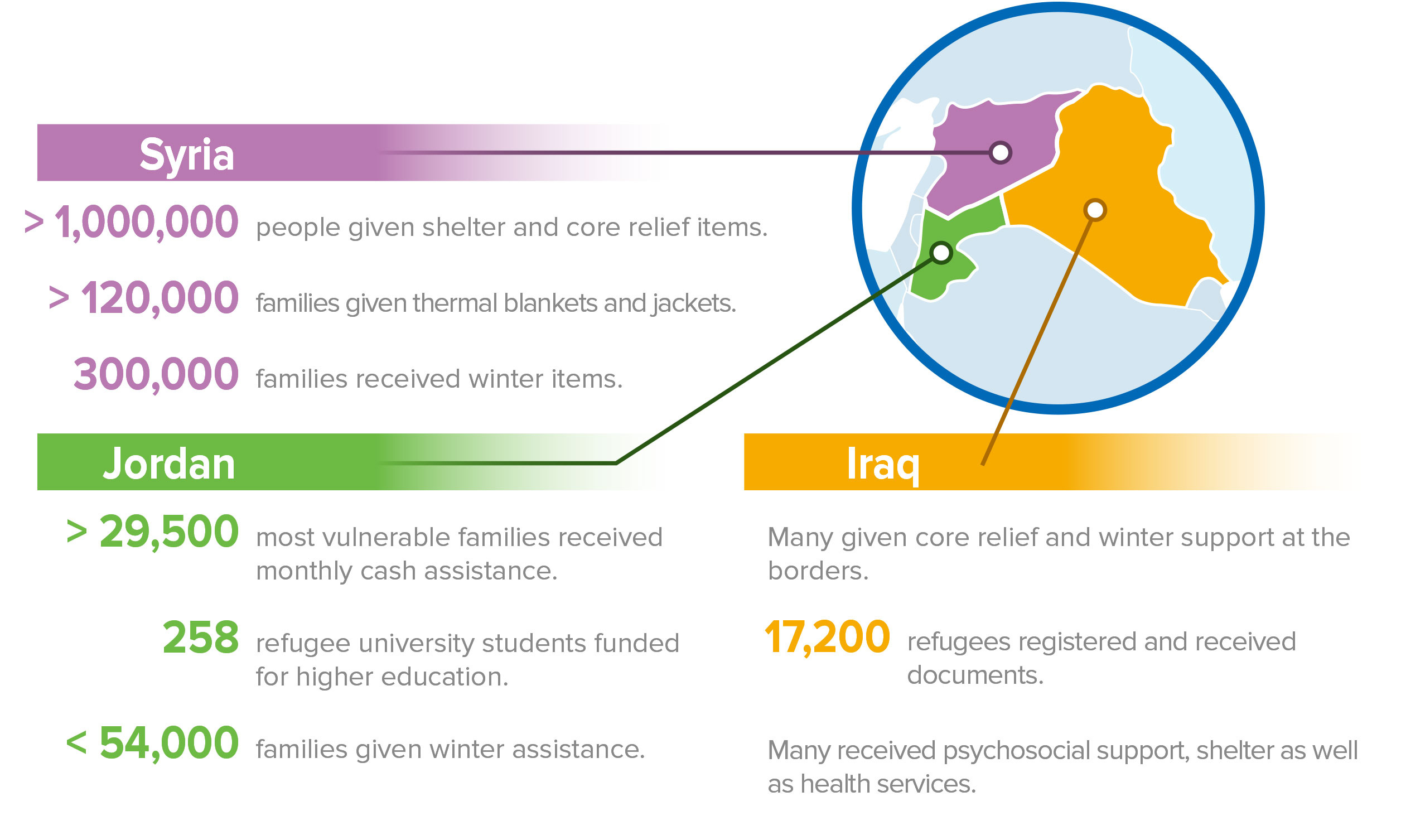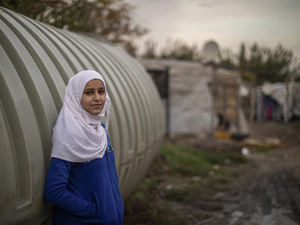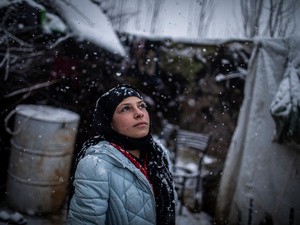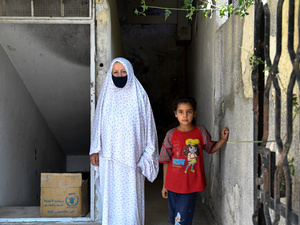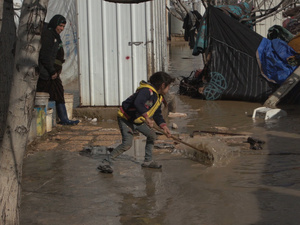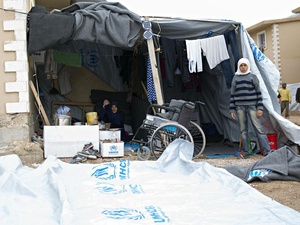Syria Crisis: 9 Years and Worsening

Syria Crisis: 9 Years and Worsening
Bombed, freezing to death and scrambling to survive in ruins and rubble, close to one million Syrians have been forced out of homes in north-western Syria’s Idlib and Aleppo in recent months, compounding the already disastrous humanitarian situation in Syria, whose nine year war has caused the world’s biggest displacement crisis.
As the war in Syria plunges into its darkest phase, UN and other partners have been working for months on end to help the vast population of the newly displaced. Yet given the intensity and scale of displacement, coupled with icy, bitter, sub-zero winter conditions, our capacity for response is far outstripped by the enormity of needs. Urgent humanitarian aid is needed.
While host communities from neighbouring countries including Turkey, Lebanon, Jordan, Iraq and Egypt have shown remarkable solidarity; with close to half of the 11-million displaced Syrians already residing in
these host countries, resources are drying up. Nine years of constant assault and suffering is already beyond tolerable; our support is needed more than ever.
Immediate Needs of Syria’s Most Vulnerable
1. Access to safety
We appeal for the neighbouring countries, including Turkey, to broaden admissions, so that people trapped in the conflict can reach safety.
2. Shelter and relief items
These are in critical shortage. Many of the newly displaced stay in unsafe makeshift shelters or even out in the open. Almost 400,000 of the recently displaced people are in need of emergency shelters. Many also lack core relief items, such as blankets, tarpaulins and kitchen sets. We’re now planning to send tents to reach
351,000 people and support up to 400,000 persons with life-saving core relief kits.
3. Protection
Protection programmes and services that address immediate and longer-term needs are vital, such as legal counselling on housing, land and property issues and legal identity (civil status documentation); psychosocial support; case management; and counselling on availability and access to essential services.
4. Camp coordination and management
Existing camps and settlements of internally displaced persons are overcrowded. Many schools and mosques are filled with displaced families. Finding suitable public lands for new camps is a major challenge.
How You Have Impacted Syrian Refugees’ Lives In the Past 9 Years
Thanks to generous donors like you, UNHCR is able to respond diligently to the needs of Syrian refugees throughout the war. Below are some of the works you’ve helped us carry out in Syria, Iraq and Jordan.
